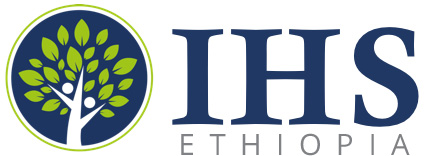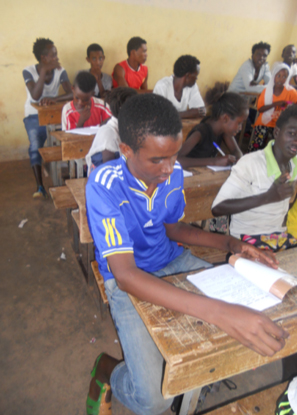Kibrom Tekie
Kibrom Tekie Decided to Continue Education and Never Stop Anymore
Shimelba refugee camp is the oldest camp in Shire Operation. It has a population of 5,690 people (UNHCR Refugee Population Data as of June 2017). The camp is populated predominantly by the Kunama ethnic group, which constitutes 63.67% and the Tigrigna ethnic group, which constitutes 32.3%. Other minority ethnic groups like Saho, Tegre, Nara and Afar constitute 4.3%.
IHS has been working with Eritrean refugees since January 2014 with the main focus being Shimelba Refugee Camp and Endabaguna Transit Center. The main programs in the Shimelba Refugee Camp concentrate on Child Protection and Livelihood. The programs in the Endabaguna Transit Center concentrate on Child Protection and Sanitation. IHS strives to improve the lives of Eritrean refugees and their children in all of the programs.
The Child Protection program in the Shimelba Refugee Camp is funded by UNHCR and aims to protect the children from various dangers. This is accomplished through projects and activities that are designed to serve the best interest of every child. Services are provided in three Child Friendly Spaces and one Child Cinema, all of which are located in the camp. These services protect the children from exposure to risks and dangers in their daily life.
These Services also help reunite and arrange foster care for separated and unaccompanied children when they arrive from Endabaguna Transit Center and from other refugee camps in the Shire Operation. Children are empowered through the Child Right Club (CRC). Community members are empowered through the Child Welfare Committee (CWC). Different campaigns and awareness raising events advocate the general child protection principles and curb harmful traditional practices such as Female Genital Mutilation (FGM), early marriage and forced marriage, all of which are prevalent in the camp population.
Kibrom Tekie is a 15-year-old Eritrean refugee has been living in Shimelba Refugee Camp with his mother, Hanesu Girmay, and his older brother Asgede Tekie since 2007 when he was received and relocated to the camp. He enrolled and dropped out of school four times due to a mild health problem with his feet and lack of medical follow up by his mother. Kibrom’s mother was alone and had a hard time raising her younger son, especially when trying to follow up his education and his leisure time activities in the camp.
Kibrom spent too much of his time wandering around the camp and watching movies in cinemas. This exposed him to activities that were not appropriate for his age and that would endanger his future. Thanks to the community football initiative, Kibrom began spending his time in age appropriate activities such as different sport activities like football training and with other children and adults who affected his life positively. Kibrom continues to get close follow-up and support from his coach Amanuel Kahsay and his neighbor Osman Ibrahim, who is member of Child Welfare Committee.
In recent years, the education enrollment in primary and secondary education in Shimelba Refugee Camp was relatively low compared to the number of school-aged children living in the camp. There was a lack of awareness about child protection and child education. As a result, many school-aged children in the camp did not attend school, especially in the Kunama community.
IHS addressed this issue by conducting a continuing education campaign that was climaxed with a big event September 7, 2017. This program was in collaboration with ARRA education, Shimelba Child Welfare Committee (CWC) and Child Right Club (CRC). The Child Welfare Committee, Child Right Club, Community Based Sport Initiative facilitators, and the Youth Club took the role of mobilization with the help of ARRA Education program and IHS Child Protection team.


